The Global Forensic and Justice Center’s (GFJC) canine program has positioned itself nationally and internationally as a leader in the advancements in canine research, standardization, and canine & handler detection team training.
GFJC’s research areas span multiple disciplines including explosives, drugs, currency, firearms, mass storage devices, accelerants, biologicals (mold, viruses), human remains and live humans for search and rescue, which have been published in numerous peer reviewed journals. This research has led to a more improved understanding of canines as a biological detector and has also resulted in the development of alternative canine training aids and other tools such as the universal detection calibrant (UDC).
Additionally, the canine program also functions as an independent certifying body for law enforcement canine & handler teams. The program established the first statewide K-9 trainer and detection team certification program with independent scientific validation in 1998. This began as a joint project between the International Forensic Science Research Institute (IFRI) and the National Forensic Science Technology Center (NFSTC) (now merged as GFJC) which works in collaboration with the Florida Highway Patrol Contraband Interdiction Program and the Florida Department of Law Enforcement, in addition to other partners. To date GFJC has certified of over 2,000 canine-handler teams across the U.S and internationally, conducted hundreds of hours of canine training workshops and lectures around the world and provided canine training aids and guidance for many agencies.
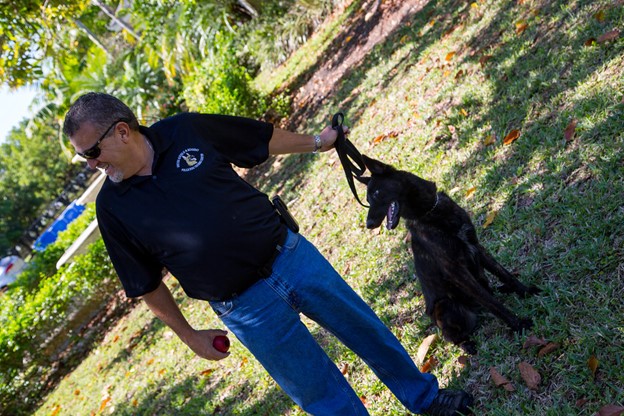
Peter Nunez, owner of United States K-9 Academy & Police Dog Training Center, a law enforcement canine trainer and FIU/GFJC-certified canine instructor and evaluator.
GFJC’s executive director and founder of the International Forensic Science Research Institute (IFRI) Dr Kenneth Furton was the founding chair of the federally funded Scientific Working Group on Dog and Orthogonal Detector Guidelines (SWGDOG) and chair of its now revised Organization of Scientific Area Committees (OSAC) Dogs and Sensors subcommittee funded by NIST/NSF. The subcommittee is currently the only federally funded body that develops best practice guidelines and standards for training, certification, selection of dogs and handlers, kenneling, healthcare and presentation of evidence in court in the U.S.
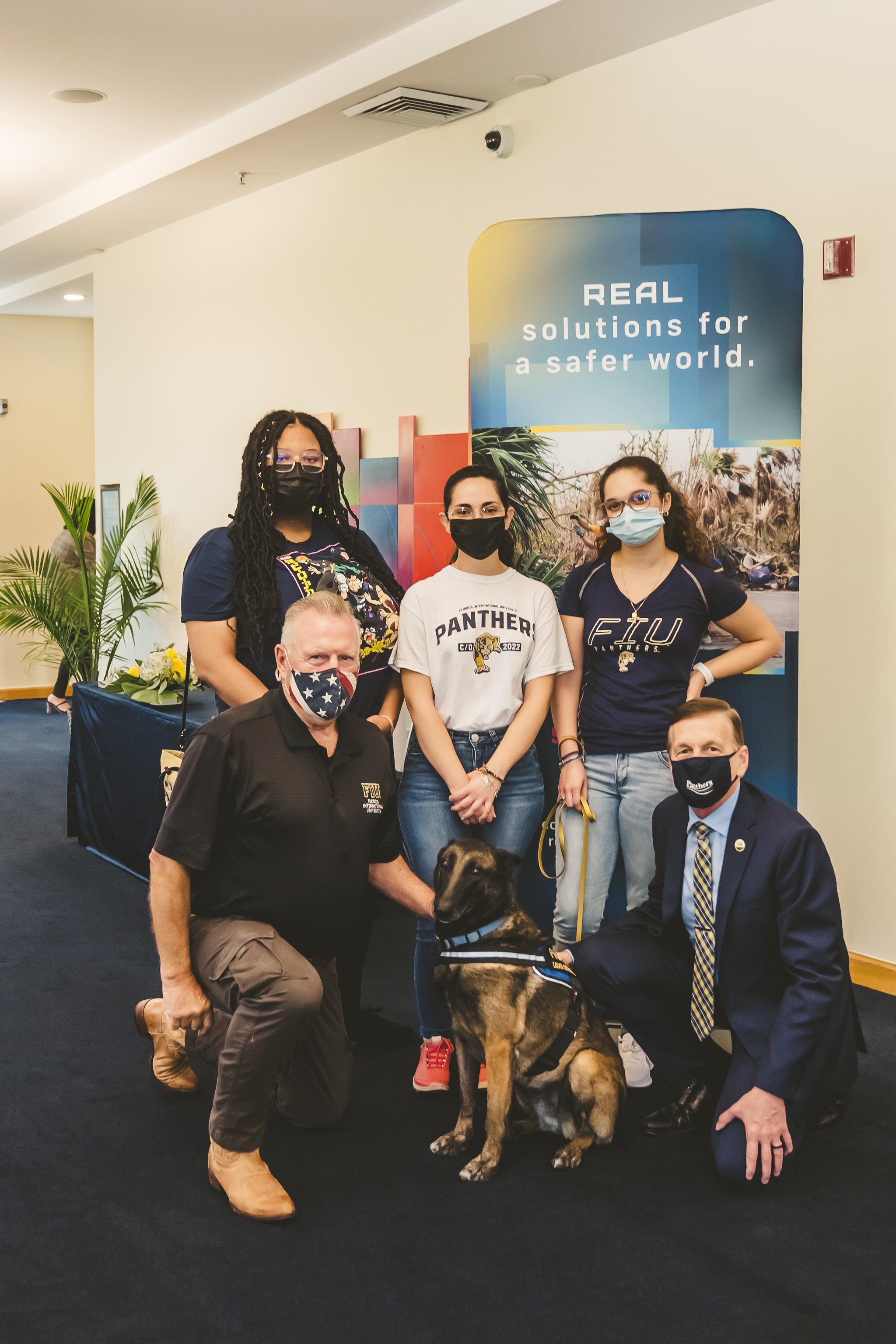
Certified detection canine, Cobra (center) with handler John Mills (left), FIU students, and Provost Dr. Ken Furton (right)
Fast Facts
- Canines’ olfactory systems are roughly 10,000–100,000 times more sensitive than the human olfactory system.
- Their noses are capable of detecting odor concentrations at 1–2 parts/trillion.
- Canines can be trained to detect not only arson accelerants, but currency, drugs, explosives, human scent, cadavers, digital devices, epilepsy, illegally-imported agricultural products, mold, fungi, and viruses.
- An experienced detector dog can be trained to a new scent within a month. An inexperienced dog needs approximately six months of training in the procedures of detection to be considered proficient to a particular scent.
- The first statewide K-9 trainer and detection team certification program with independent scientific validation was started in 1998 as a joint project between the International Forensic Research Institute (IFRI) and the National Forensic Science Technology Center (now NFSTC@FIU).
- We work in collaboration with the Florida Highway Patrol Contraband Interdiction Program and the Florida Department of Law Enforcement, in addition to other partners.
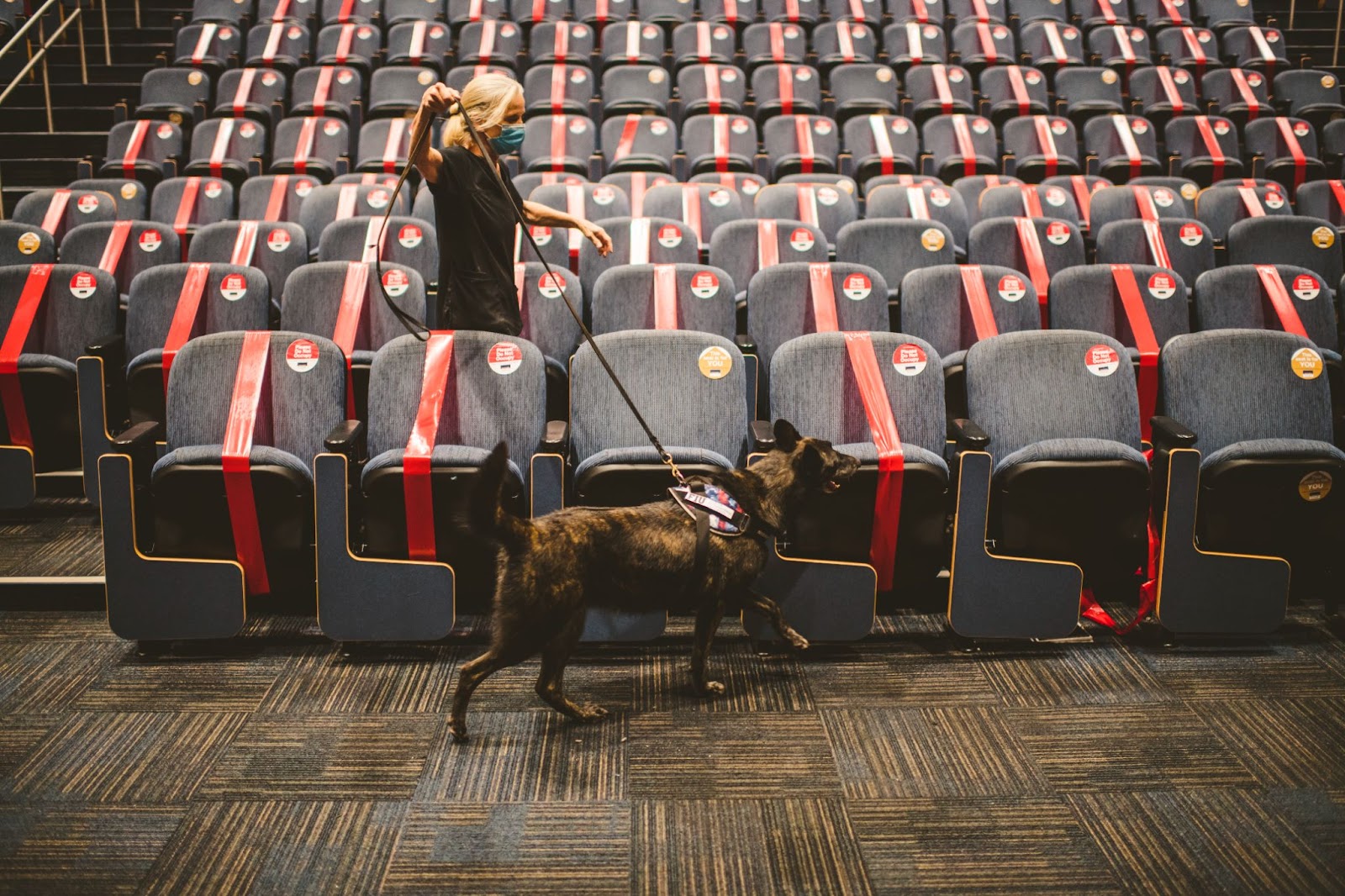
Trainer Kelley Hall and One Betta working to discover the target odor that has been hidden in classrooms and libraries.
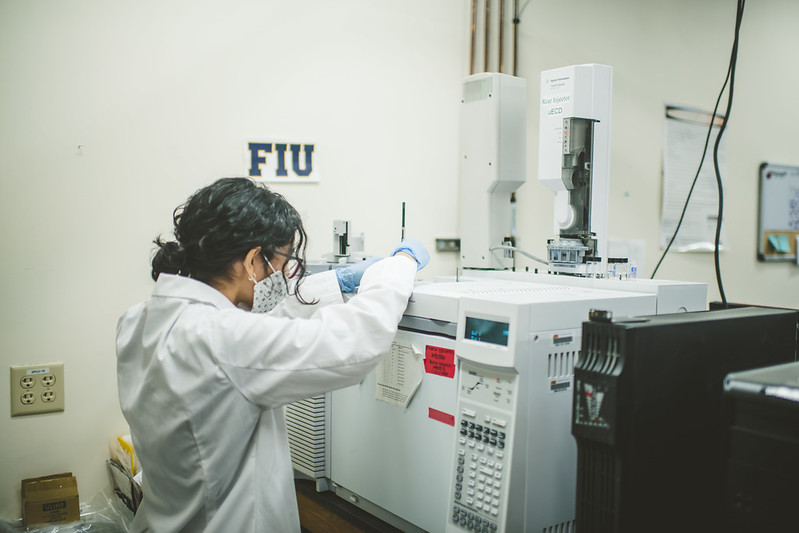
Research isolates the volatile organic compounds (VOC) unique to odors in FIU campus labs.
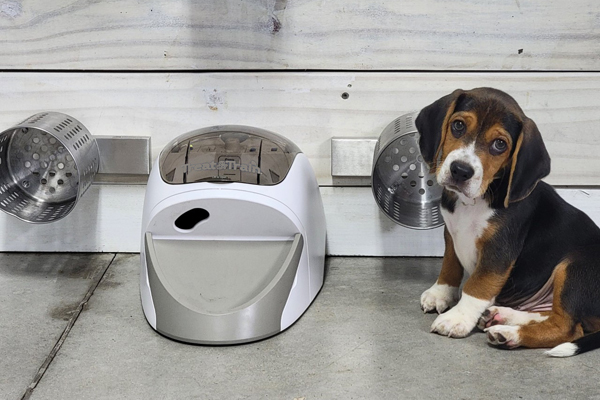
Training starts early for future detection canines.
Contact

Kelvin J. Frank, PhD
Canine Detection Program Manager, Global Forensic and Justice Center
Phone: 305-348-6211
Email: kfrank@fiu.edu